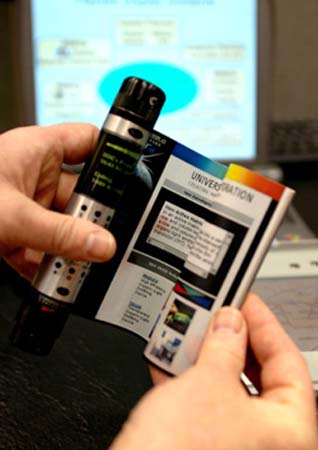LG's New Patent Brings Digital Paper One Step Closer

LCD paper is a way of taking an ordinary, transparent piece of plastic and giving it the same potential as a computer monitor. That is, a place where anything, from a webpage to a video can be downloaded and displayed with ease. LG recently created the A4 electric paper, which has 4,096 colors, and it is made up of flexible plastic that is millimeters thick. Not only was the image quality good, but it looked good from any angle.
LG has also recently filed a patent that will enable them to make less expensive digital paper. One of the main problems with making electronic paper is that OLEDs are made at a higher temperature than the melting point of the plastic that they are affixed to. This led the manufacturers to cook the Organic LED (OLED) on glass first, then transfer them to plastic. This led to a lot of defective displays, as well as some extremely high production costs.
What LG’s new patent does is use the oil and water capsule technology that is used on electronic ink displays toward OLED tech. Making the pixels out of tiny capsules of oil and water removes the costly production problem. The technology also involves using plastic capsules with a colored lower surface underneath. The opaque oil in the capsule obscures the color, at least until a current passes through, thus changing the color of the pixel.
Not only will this new LG patent speed up manufacturing of digital paper products, but it could start a digital paper revolution. All it needs is a fast refresh rate, and a way of using power without draining too much battery life.
Clearly, the application for this technology is infinite. The last thing we need is to kill more trees to create paper documents. If you really think about it, there are constant useless pieces of paper floating around in the form of junk-mail and absolutely needless hard copies. How many hard copies of will we really need when all we would have to do is download it onto digital paper. Then that paper could be anything we wanted it to be.
After all, we are slowly becoming a paperless society anyway. Computer records have eliminated needless hard copy files, so it is about time that digital paper is introduced so it can be taken to the next step. Let us hope LG will produce inexpensive digital paper to supply all of our needs.



